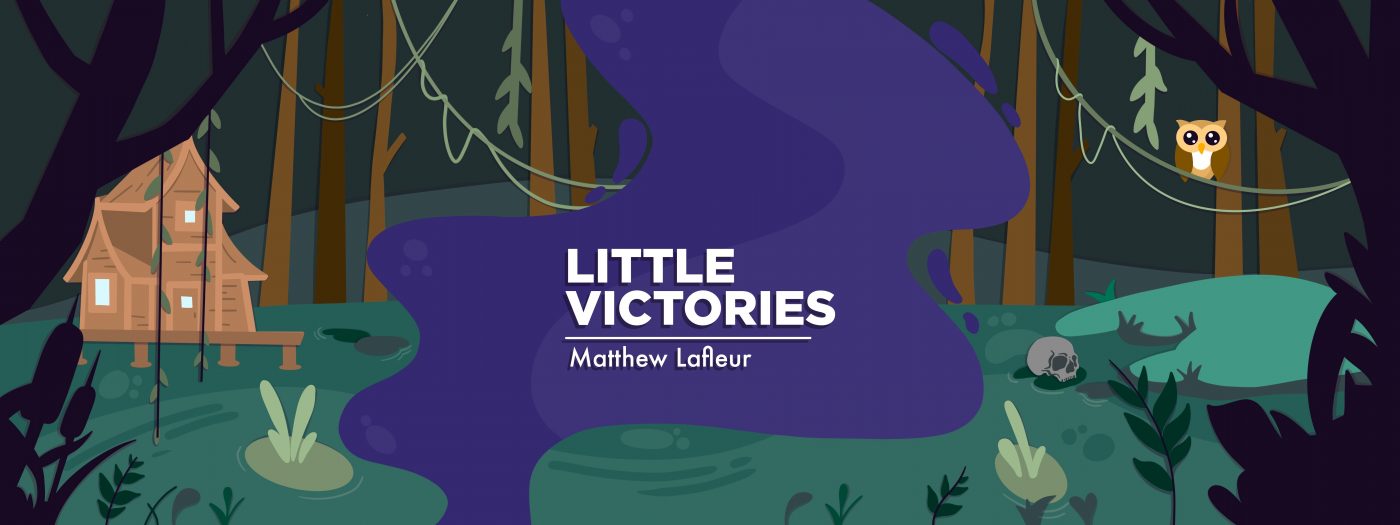It takes strength to endure FA and life’s unforeseen challenges
A columnist explains why choosing to keep on is a sign of fortitude
Written by |

The word “enduring” has been on my mind a lot lately.
I was thinking about that concept as I saw friends with Friedreich’s ataxia (FA) post on social media about the approval of Skyclarys (omaveloxolone), the first-ever treatment for our disorder. Even though it’s worth celebrating that U.S. patients ages 16 and older now have access to the drug, I’m particularly struck by the posts from those who don’t have access.
As I thought about these FAers waiting for something, anything, to slow or stop their disease progression, I didn’t think that enduring seemed like a particularly empowering or heroic option; it may just feel like the only way to survive.
As I was musing bleakly about that idea, I listened to “Giants” by Matt Nathanson, who also wrote the namesake song of this column, “Little Victories.” In it, Nathanson encourages average people like him to see themselves as giants.
The song made me realize that I should see enduring not as a desperate act, but as a victorious feat. Perhaps I underestimated how much it takes to survive, especially when surviving is difficult. Enduring isn’t something we do when we have no alternative; it’s a sign that we’re truly strong.
Reflecting on how I’ve endured
One evening in 2009, one of my graduate school classes hosted its first guest speaker. There seemed to be more students in the classroom than usual, and we all listened attentively as the speaker, a vocational counselor employed by the college, shared insights from her profession.
“How many of you,” she asked the class, “intend to work in the field of your counseling degree?”
Predictably, everyone in the classroom raised their hands, including me. Especially me.
“Believe it or not,” she continued, “about 15%-20% of you won’t end up working in that field. Life is filled with unforeseen circumstances.”
I was almost offended. What kind of dummies did she think we were? Why would we pay an exorbitant amount of money for grad school and not use the degree?
“Some of you may not work as counselors, but your education will serve you in all of your interpersonal communication. Some of you may even write about what you learned in counseling,” she said.
Like many of my classmates, I left that night thinking she wasn’t talking about me. I was going to get a job as a counselor.
But FA had other plans.
A couple of years and a master’s degree later, I couldn’t find a job as a counselor, even coming from a respectable college with high grades. I also realized that FA’s progression hadn’t stopped when I became dependent on a wheelchair at age 18; my arm and finger dexterity were worsening, my speech was losing clarity, and driving, even with hand controls, was becoming impossible. After moving to and from three cities in search of a counseling job and never getting one, I figured out that my condition was, unfairly, a hindrance in my chosen career.
But I persevered in my job search and was lucky enough to find Friedreich’s Ataxia News, which was looking for remote columnists to write about life with FA. This opportunity soon blossomed into a full-time position at the website’s parent company, Bionews.
Even though my work isn’t the life or career I expected, I’m happy. And I realize it took strength for me to endure when I confronted obstacles in my career path.
The alternative to enduring
After all, instead of continuing my job search, I could’ve just given up, which appealed to me for a while. Choosing to live as a victim is always an option.
The notion that there’s no alternative to endurance is wrong. Whether you’re navigating difficulties in your career, relationship, or parenthood, or you’ve simply chosen to wake up and face another day, I applaud you for persevering.
You’re stronger than you realize.
“The world don’t speak for us
They lack the confidence
Yeah, we’re only hearts and bones and blood
Oh, but we are giants.”
— “Giants” by Matt Nathanson
Note: Friedreich’s Ataxia News is strictly a news and information website about the disease. It does not provide medical advice, diagnosis, or treatment. This content is not intended to be a substitute for professional medical advice, diagnosis, or treatment. Always seek the advice of your physician or another qualified health provider with any questions you may have regarding a medical condition. Never disregard professional medical advice or delay in seeking it because of something you have read on this website. The opinions expressed in this column are not those of Friedreich’s Ataxia News or its parent company, Bionews, and are intended to spark discussion about issues pertaining to Friedreich’s ataxia.




Leave a comment
Fill in the required fields to post. Your email address will not be published.